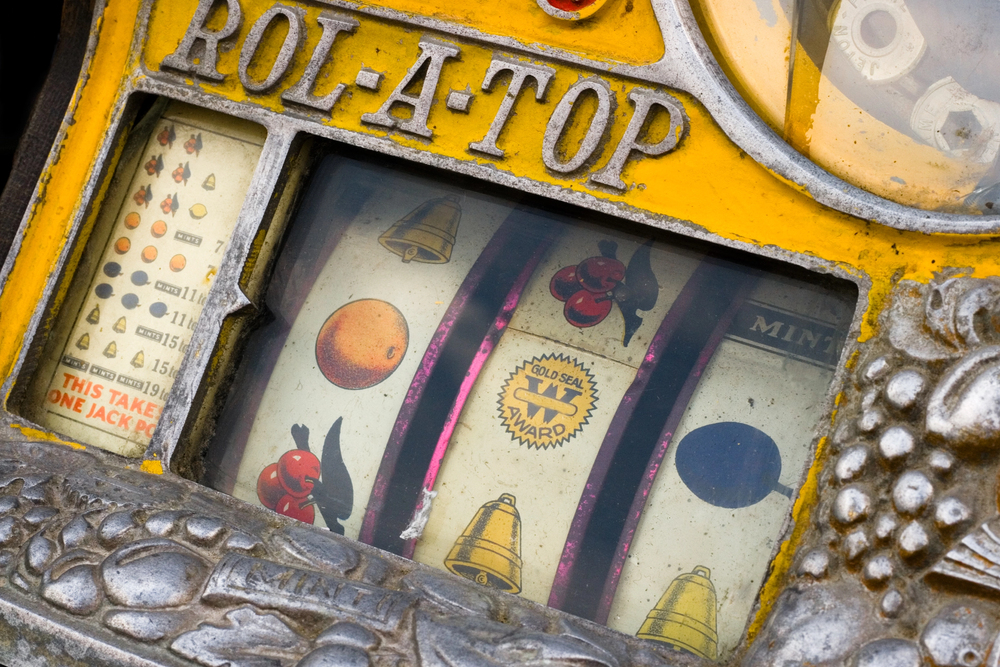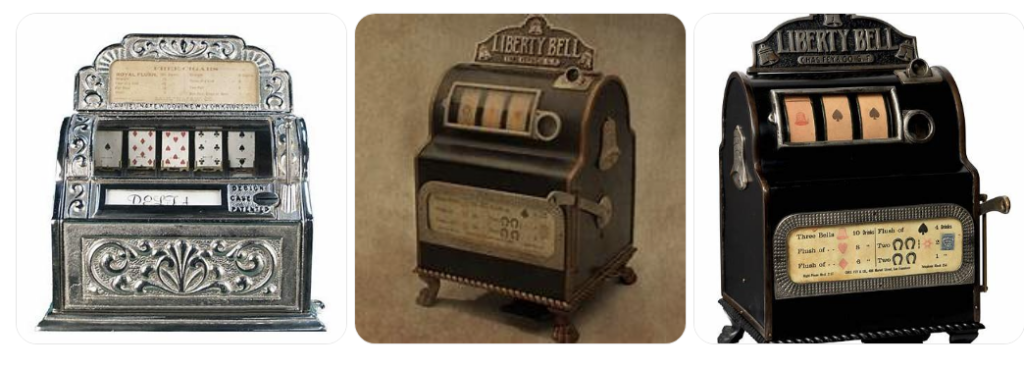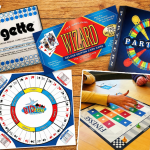From the mechanical ingenuity of the 1890s to the digital innovations of the 21st century, slot machines have undergone a remarkable transformation.
The Evolution of Slot Machines: From One-Armed Bandits to Online Thrills

The Evolution of Slot Machines: From One-Armed Bandits to Online Thrills
Did you know that a significant amount of a casino’s revenue comes from slot machines? You’ve likely seen these vibrant machines and maybe even pulled a lever or two yourself. As you explore the history of these ubiquitous games, you’ll uncover a journey from their humble mechanical beginnings to the high-tech, online marvels of today. There’s a lot more to these digital wonders than meets the eye, and their transformation story might surprise you.
Key Takeaways
- Slot machines originated with Sittman and Pitt’s 1891 machine, evolving from mechanical to electronic through technological advancements.
- Charles Fey’s Liberty Bell introduced automatic payouts, simplifying design and marking a significant innovation in slot machine history.
- The digital revolution of the 1980s integrated microchips, growing slot functionality, and boosted reliability.
- Online slots surged in the 1990s, expanding accessibility on desktops and mobile devices and becoming vital casino revenue sources,
- Future innovations aim to enhance immersion, personalize gameplay, and ensure transparency and security in gaming.

The Fascinating Beginnings
Although the concept of slot machines seems quite modern, their fascinating beginnings trace back to the late 19th century. In 1887, Sittman and Pitt introduced an intriguing card machine with five drums containing 50 playing cards, popularizing them in bars despite lacking direct payouts.
By 1891, these machines offered free drinks or cigars as rewards. Charles Fey revolutionized this scene in 1894 with his coin-operated slot machine in San Francisco. The design evolved further when video slot machines were introduced in Las Vegas in 1975, simulating reels on a monitor and paving the way for modern electronic gaming.
Technological Milestones
While the origins of slot machines lay in the mechanical world, the journey into the future has been driven by remarkable technological milestones.
Some key advancements that have shaped today’s gaming experiences include:
- Electromechanical Innovations: In the 1960s, machines like “Money Honey” automated payouts, retained the iconic lever, and introduced lights and sounds, making gameplay more engaging.
- Video Slot Machines: Fortune Coin’s 1976 innovation used video displays and random number generators (RNGs), setting the stage for enhanced graphics and exciting bonus features.
- The digital revolution in the 1980s introduced microchip integration, bringing complex functionalities and ensuring reliability through linked jackpots.
- Online Development: In the 1990s, online slots expanded access, bringing gameplay to desktops and mobile devices, and enhancing accessibility and interaction. Slot machines became a critical revenue source for casinos, expanding significantly on gaming floors due to the allure of big wins and ongoing innovations.
From Trials to Triumphs
Born from innovation and perseverance, the history of slot machines is a tribute to overcoming challenges and achieving breakthroughs.
You can trace their journey back to 1891 with Sittman and Pitt’s poker-inspired machine. Despite manual payouts and increased house odds, it gained popularity in bars.
Fast forward to Charles Fey’s Liberty Bell, you’ll find the first mechanical slot with automatic payouts, revolutionizing the industry with its simpler, three-reel design.
Symbols evolved, jackpots became automated, and machines adapted to legal challenges.
Legalization in Nevada marked a turning point, proving that overcoming trials leads to triumphs in entertainment history.
The Rise of Online Gaming
As the triumphs of mechanical slot machines opened new avenues in entertainment, the digital revolution heralds an exciting era for gaming. From immersive RPGs to real slots online, the spectrum of digital entertainment continues to expand at an unprecedented speed.
Key factors include:
- Technological Advancements: Cloud gaming and VR/AR technologies enhance accessibility and immersion,
- Mobile Dominance: Smartphones backed by high-speed internet make gaming portable and widespread,
- Esports Influence: Competitive gaming attracts younger audiences, boosting the market.
- Social Connectivity: Platforms like Twitch enable community building and engagement, transforming gaming into a shared cultural experience.
Navigating Legal Landscapes
Understanding the legal landscape is essential when stepping into the complex world of online slots.
Each country regulates online slots differently, with U.S. regulations varying state by state. Navigate carefully if you’re in New Jersey, Pennsylvania, or Nevada, where it’s legal and regulated.
Canadian regulations depend on provincial rules, creating a patchwork approach. Australia bans local operators but allows foreign ones to operate.
Licenses from bodies like the UKGC or MGA are essential for legitimacy. Guarantee compliance with fairness tests and responsible gambling tools to avoid fines and legal issues.
Always stay up to date to maintain compliance in this dynamic environment.
Future Horizons in Slot Gaming
In the rapidly evolving world of slot gaming, emergent technologies are crafting the next wave of player experiences. You can expect an exciting era where immersive environments blend the real and digital worlds.
Remember this as you explore the future:
- VR/AR: Fully immersive and interactive,
- Skill-Based Slots: Blend chance with skill for a competitive edge.
Stay ahead in the gaming revolution!
Full Circle: From Gears to Gigabytes
The journey of slot machines isn’t just a tale of spinning reels and flashing lights—it’s a story of human ingenuity, entertainment evolution, and the seamless blend of nostalgia and innovation. Slot machines have mirrored the times, adapted to every shift, and now stand at the frontier of immersive digital entertainment.
From mechanical contraptions in smoky bars to algorithm-driven experiences on your smartphone, each phase reflects our desire for thrill, convenience, and connection. Whether you play for fun, fortune, or fascination, you’re part of a legacy that’s constantly spinning toward the next big thing.








